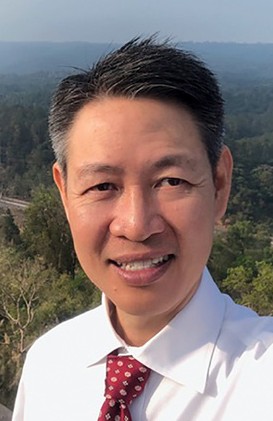Advent Devotional 2024 | DAY 11. LUKE 2:15–20
O Come, all ye faithful, joyful and triumphant,
O come ye, O come ye to Bethlehem;
come and behold him born the king of angels.
O come, let us adore him, Christ the Lord.
— O Come, All Ye Faithful (v. 1)
“O come let us adore him, o come let us adore him, o come let us adore him, Christ the Lord.” The lyric has been sung throughout generations as an invitation to all people to come and see Christ, the Lord. However, in the story of Luke 2:15–20, God’s invitation did not initially come to all people but rather to a specific group—some shepherds keeping watch over their flocks by night. Who are these shepherds? Why did they have the privilege of the first invitation? These questions guide us to important lessons in this season.
First, the shepherds are marginalized. They were poor and low in status, often ignored by society. They were nobodies to most people, overlooked when the privileges were distributed. But this story shows that God did not ignore them. On the contrary, God sent an angel, accompanied by a great multitude of the heavenly host, to call them to come to Bethlehem to see the newborn king. During Christmas, most churches invite friends and family to celebrate with joy and to hear the Christmas message. This story encourages us not to ignore the marginalized around us—here in Thailand, that includes undocumented workers from neighbouring countries, the poor and elderly among us who need assistance and even former and current prisoners—for they matter to the Lord. If anyone feels insignificant, the story invites them to listen to the good news and know it’s for them.
Second, the shepherds respond with haste. After the angels had left, the shepherds hurried to Bethlehem to see what had happened according to the good news they received. We do not know how they managed their flocks while traveling to Bethlehem or why they needed to hurry. Nevertheless, their eagerness shows that they took the invitation seriously and valued the news as real hope for life. People in my context respond quickly when they believe they will gain something tangible or meet their own interests, such as receiving money, securing scholarships for students or obtaining good job positions. However, they often fail to realize that the gospel offers far greater benefits than what they think they truly need. When we have too many things to do or desires to fulfil, we might easily ignore God’s invitation to come see and adore Jesus. Like the shepherds, we need to hear and respond to God’s gracious invitation with urgency.
Third, the marginalized became the agents of hope. Interestingly, after visiting the child, the shepherds spread the word about the child to everyone, causing amazement. The story does not mention the angels instructing them to spread this message. The shepherds spread it with excitement on their own, becoming natural agents of the good news. Evangelism is not only a big event, requiring a wonderful preacher or a good reputation to share a witness. God can use anyone who has experienced His grace to bear witness. In Thailand, powerful testimonies often come from those who have faced significant failures in business or family life, or even from former drug dealers who have spent many years in prison. These individuals’ experience of God’s grace makes for powerful testimony to the hope of the gospel.
We, too, should ask these questions: Have we experienced God’s grace? How has God’s grace impacted our lives? The answer becomes our witness to the good news of Jesus, and we, too, become agents of hope.
The more we experience Christ and His goodness to us and to all people, the more we enjoy the invitation: O come let us adore him. The more we enjoy this invitation, the more excited we are to invite others to come and adore Him, for the newborn baby is Christ, our Savior and our Lord. Amen.

Dr Wiriya Tipvarakankoon Wiriya
Thailand
Wiriya is a Langham Scholar and a member of the Langham Preaching committee in Thailand. He serves as the head of the M.Div. program at Bangkok Institute of Theology and as a part-time minister at Sueb Sampanthawong Church in Bangkok.